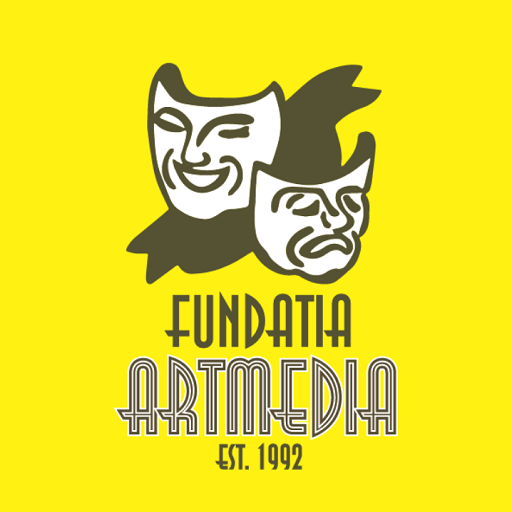Insights from Sunlight over Borders Rountable
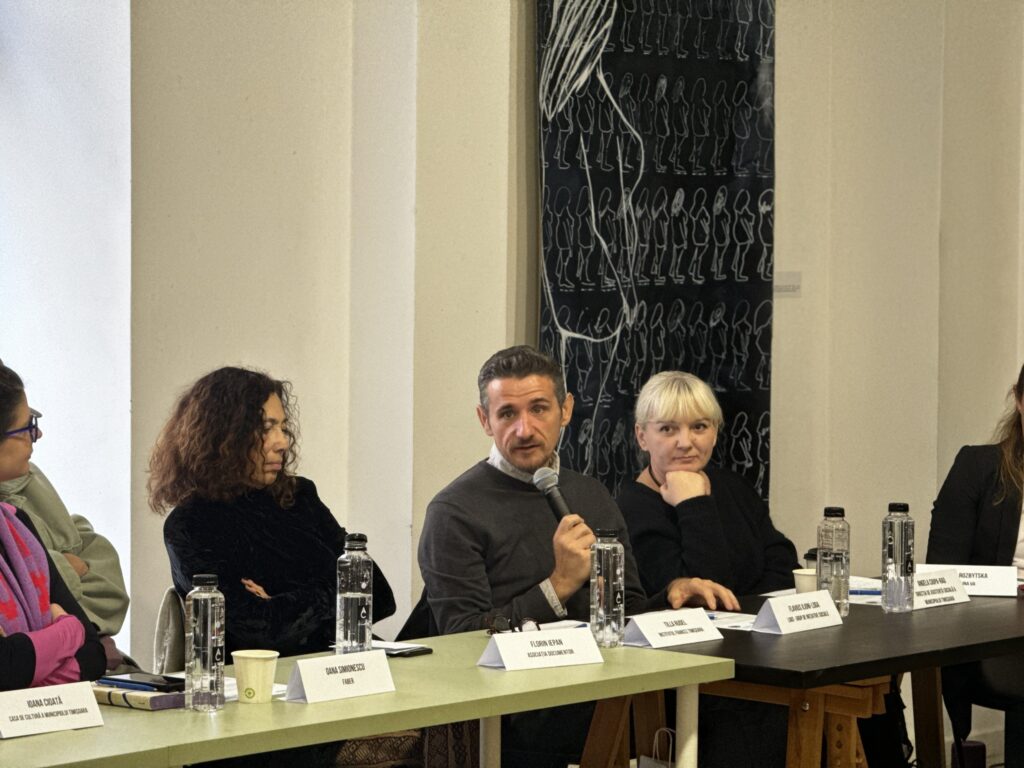
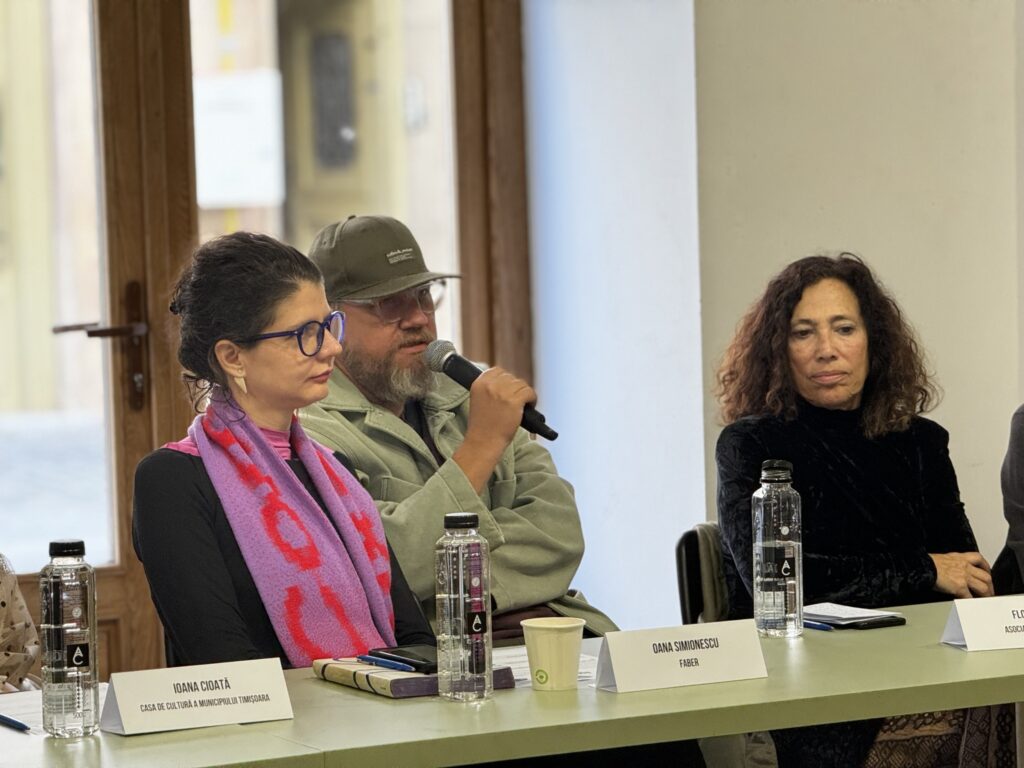
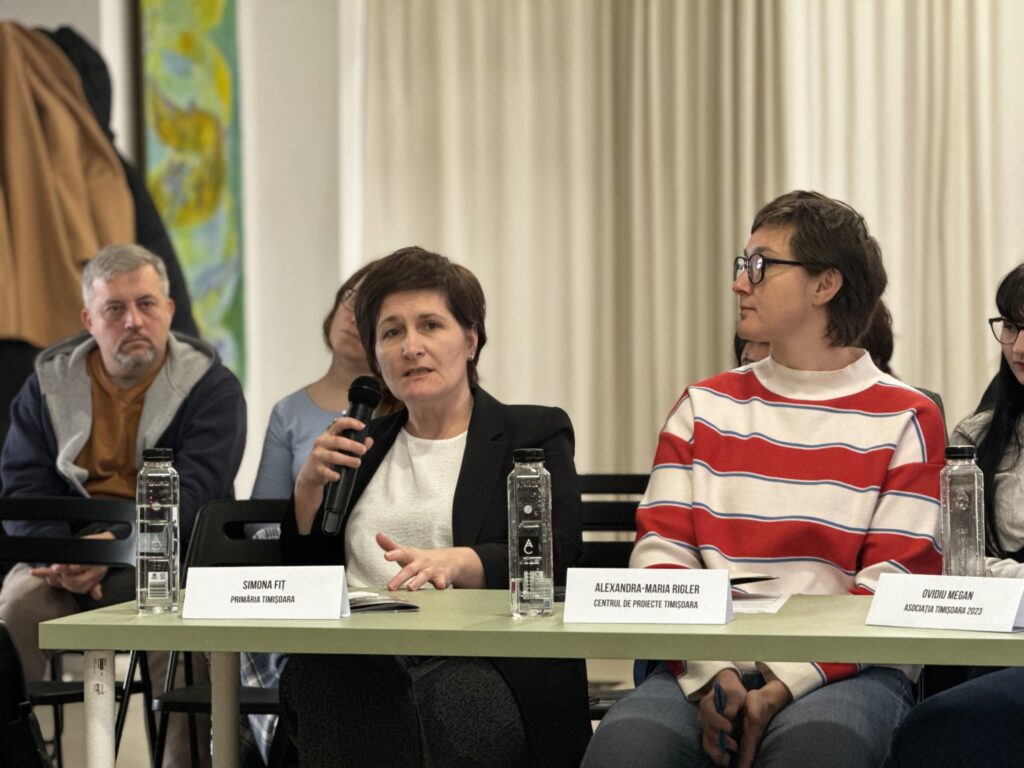

On the morning of “BLOCKPOST” corproduction avanpremiere, a roundtable discussion brought together artists, cultural leaders, and social organizations to explore the transformative potential of cultural collaboration. The event highlighted the role of culture in fostering understanding, addressing societal challenges, and building resilience in the face of war and displacement, focusing on Ukrainian-Romanian partnerships amid the ongoing war in Ukraine.
Background: A Legacy of Collaboration
Timisoara, the 2023 European Capital of Culture, has long been a hub for multicultural exchange. Recent projects have amplified this legacy, fostering deeper connections between Romanian and Ukrainian communities. Central to this effort is the Ukrainian cultural initiative ZMINA, founded in 2014 as a response to the Russian invasion of Ukraine. Initially a support system for grassroots cultural initiatives in Ukraine, ZMINA has grown into a platform for international collaboration, exemplifying how cultural centers can act as beacons of resilience and unity, Sunlight over Borders being one of the 13 selected projects to be implemented in 2024 with IZOLYATSIA Foundation support.
Key Themes and Discussions
1. Culture as a Tool for Social Cohesion
The discussion emphasized the evolving role of cultural institutions in times of crisis. In Ukraine, cultural organizations have transitioned from traditional roles—such as art galleries or theaters—to becoming hubs for social cohesion and support. By fostering dialogue, providing spaces for reflection, and uniting communities, these organizations have become critical in maintaining societal integrity amid turmoil.
2. Building Bridges Through Collaboration
Numerous speakers underscored the importance of international partnerships in sustaining and amplifying cultural efforts. Examples included:
- ARTMEDIA & FAINA UA partnership: This collaboration resulted in joint artistic productions, such as the play showcased during the event, which featured Ukrainian and Romanian artists.

Support from the European Commission: ZMINA’s work received European recognition, allowing it to implement large-scale cultural programs that connect Ukrainian creative initiatives with European counterparts.
3. Challenges and Opportunities in Advocacy
While collaboration has grown, the discussion highlighted the persistent challenge of countering Russian propaganda and misconceptions about Ukrainian identity. Despite increased visibility due to the war, many Ukrainians feel the need to assert their cultural and historical identity in international contexts.
4. Grassroots and Institutional Efforts
Participants from various organizations shared examples of impactful collaborations:
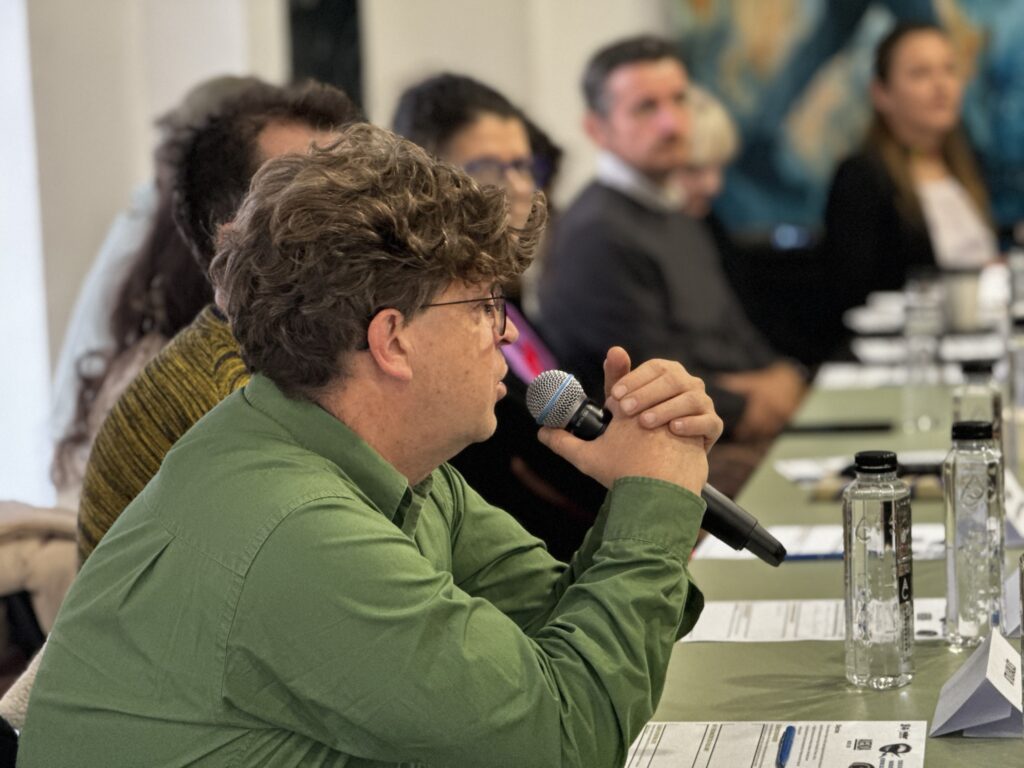



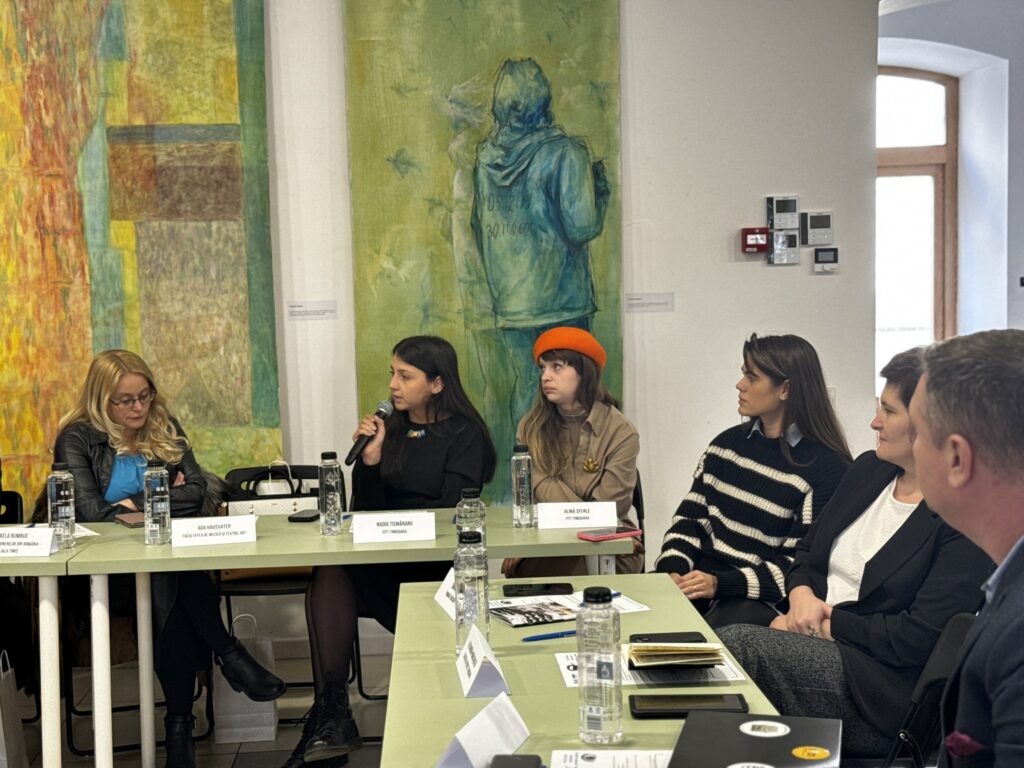

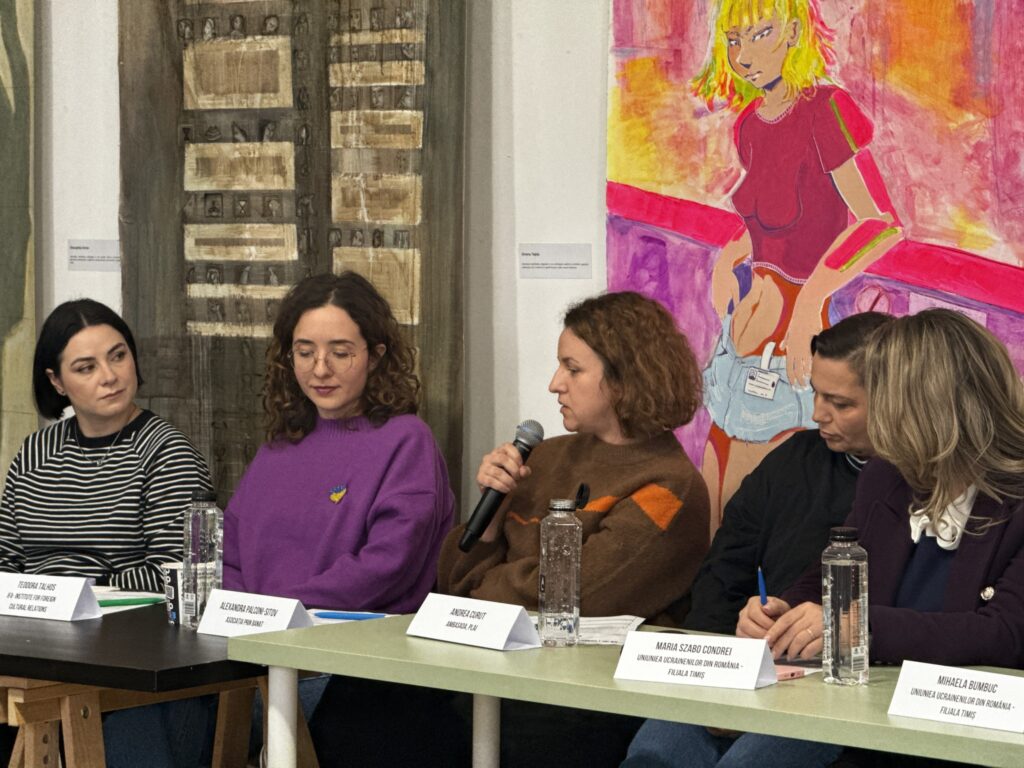
Alexandra Riegler (Center for Projects in Timișoara):
- 25% of projects under Timișoara 2023 European Capital of Culture were international.
- Introduced initiatives like mobility funds and emergency cultural needs funds.
- Highlighted successful examples like video mapping performances for Ukraine Independence Day.
Ovidiu Megan (Timișoara 2023 Association):
- Emphasized the continuation of Romanian-Ukrainian collaborations post-European Capital of Culture designation.
- Stressed culture as a tool for societal mobilization and empowerment.
The German and Hungarian Theatres in Timisoara integrated Ukrainian performances into their festivals, creating spaces for cultural exchange.
FITT (Youth Organization) employed Ukrainian teachers and facilitated youth exchanges, empowering young people through arts and educational initiatives.
The Union of Ukrainians in Romania supported the integration of Ukrainian refugees while preserving their cultural identity through language courses, sports events, and artistic showcases.
Documentor shared experiences of using art workshops, film screenings, and exhibitions to challenge stereotypes and foster understanding of marginalized communities.
Andreea Oance (West City Radio Representative): Shared concerns about public perceptions of the war and Ukrainian refugees, emphasizing the role of storytelling to combat misinformation.
Examples of Collaborative Projects: Ongoing projects include school programs for Ukrainian children, bilingual arts classes, and exchange programs under Erasmus Plus.
Concrete Outputs and Proposals
Several actionable ideas emerged from the discussions:
- Developing a Centralized Collaboration Platform: Participants proposed creating a shared database of cultural organizations and institutions to streamline partnerships across borders. This tool would serve as a repository of contacts, resources, and ongoing projects.
- Promoting Awareness and Advocacy: Leveraging media platforms to disseminate Ukrainian cultural narratives and counter misinformation was identified as a key strategy. Local journalists and media representatives emphasized the need to reach beyond supportive circles to challenge broader public misconceptions.
- Expanding Funding Mechanisms: To sustain these collaborations, participants advocated for extending funding opportunities like Timisoara’s mobility fund and the EU’s Creative Europe program to support Ukrainian and Romanian cultural initiatives.
- Encouraging Long-term Partnerships: Projects like the annual Ukrainian Film Festival and cross-border theater collaborations were celebrated as models for fostering enduring cultural ties.
The Role of Art in Social Change
Art emerged as a recurring theme in driving social transformation. Beyond entertainment, artistic endeavors were recognized as tools for storytelling, empathy, and resistance. Examples included workshops, exhibitions, and performances that brought together local and refugee communities, fostering mutual understanding.
A Shared Vision for the Future
The roundtable concluded with a shared commitment to continue these efforts, emphasizing the importance of cross-cultural collaboration in shaping a resilient and inclusive society. Participants envisioned a future where Ukrainian and Romanian artists, organizations, and communities could work hand-in-hand to promote peace, preserve cultural identities, and inspire global solidarity.


Call to Action
As Timisoara continues to host and support Ukrainian cultural initiatives, the city sets an example of how art and culture can transcend borders and foster meaningful connections. The event’s organizers and participants called on governments, institutions, and individuals to:
- Support grassroots cultural initiatives.
- Build platforms for cross-cultural dialogue.
- Recognize and amplify the voices of displaced communities.
In a world increasingly shaped by division and conflict, this discussion reaffirmed that culture remains a powerful bridge—a bridge worth building and preserving.

